11 start with H start with H

Do women do science differently? And how about feminists--male or female? The answer to this fraught question, carefully set out in this provocative book, will startle and enlighten every faction in the "science wars."
Has Feminism Changed Science? is at once a history of women in science and a frank assessment of the role of gender in shaping scientific knowledge. Science is both a profession and a body of knowledge, and Londa Schiebinger looks at how women have fared and performed in both instances. She first considers the lives of women scientists, past and present: How many are there? What sciences do they choose--or have chosen for them? Is the professional culture of science gendered? And is there something uniquely feminine about the science women do? Schiebinger debunks the myth that women scientists--because they are women--are somehow more holistic and integrative and create more cooperative scientific communities. At the same time, she details the considerable practical difficulties that beset women in science, where domestic partnerships, children, and other demanding concerns can put women's (and increasingly men's) careers at risk.
But what about the content of science, the heart of Schiebinger's subject? Have feminist perspectives brought any positive changes to scientific knowledge? Schiebinger provides a subtle and nuanced gender analysis of the physical sciences, medicine, archaeology, evolutionary biology, primatology, and developmental biology. She also shows that feminist scientists have developed new theories, asked new questions, and opened new fields in many of these areas.
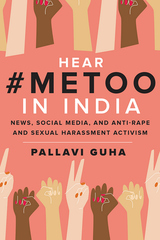

Drawing on the history of utopian thought, as well as on her own research on utopian communities, Kitch defines utopian thinking, explores the pitfalls of pursuing social change based on utopian ideas, and argues for a "higher ground" —a contrasting approach she calls realism. Replacing utopianism with realism helps to eliminate self-defeating notions in feminist theory, such as false generalization, idealization, and unnecessary dichotomies. Realistic thought, however, allows feminist theory to respond to changing circumstances, acknowledge sameness as well as difference, value the past and the present, and respect ideological give-and-take.
An important critique of feminist thought, Kitch concludes with a clear, exciting vision for a feminist future without utopia.

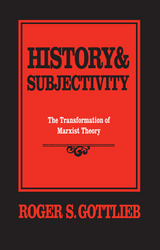

In Holy Rebellion, Ronit Irshai and Tanya Zion-Waldoks examine social change in Israel through a rigorous analysis of the shifting entanglements of religion, gender, and law in times of cultural transformation. They explore theological, halakhic, political, and sociological processes and show how they interact with one another in ways that advance women’s rights, as well as how they are met with a conservative backlash in the discourses and actions of the rabbinic establishment. Irshai and Zion-Waldoks build on legal philosopher Robert Cover’s 1982 paper “Nomos and Narrative,” which explained how cultural narratives and legal norms are reciprocally enforced or transformed. Expanding on this notion, Irshai and Zion-Waldoks propose a “narrative ripeness test,” an analytic tool that evaluates the relationship between culture and law to assess how and when change within a minority cultural community may be accelerated or hindered by state intervention.
Religious feminisms are emerging around the world, not solely in Israel, and this book helps elucidate how they create enduring and radical change. Many liberal states are also confronting an illiberal backlash and question the multicultural framework’s ability to serve the needs of minorities within minorities. Therefore, the theoretical framework offered by Irshai and Zion-Waldoks is applicable beyond the Israeli case, even as it offers deeper insights into an Israeli society in turmoil.
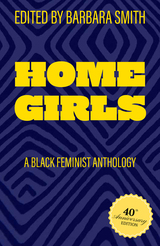
Contributors: Tania Abdulahad, Donna Allegra, Barbara A. Banks, Becky Birtha, Cenen, Cheryl Clarke, Michelle Cliff, Michelle T. Clinton, Willi (Willie) M. Coleman, Toi Derricotte, Alexis De Veaux, Jewelle L. Gomez, Akasha (Gloria) Hull, Patricia Spears Jones, June Jordan, Audre Lorde, Raymina Y. Mays, Deidre McCalla, Chirlane McCray, Pat Parker, Linda C. Powell, Bernice Johnson Reagon, Spring Redd, Gwendolyn Rogers, Kate Rushin, Ann Allen Shockley, Barbara Smith, Beverly Smith, Shirley O. Steele, Luisah Teish, Jameelah Waheed, Alice Walker, and Renita J. Weems.
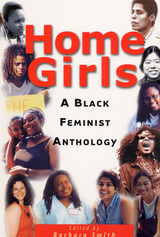
Contributors are Tania Abdulahad, Donna Allegra, Barbara A. Banks, Becky Birtha, Julie Carter, Cenen, Cheryl Clarke, Michelle Cliff, Michelle T. Clinton, Willie M. Coleman, Toi Derricotte, Alexis De Veaux, Jewelle L. Gomez, Akasha (Gloria) Hull, Patricia Jones, June Jordan, Audre Lorde, Raymina Y. Mays, Deidre McCalla, Chirlane McCray, Pat Parker, Linda C. Powell, Bernice Johnson Reagon, Spring Redd, Gwendolyn Rogers, Kate Rushin, Ann Allen Shockley, Barbara Smith, Beverly Smith, Shirley O. Steele, Luisah Teish, Jameelah Waheed, Alice Walker, and Renita Weems.
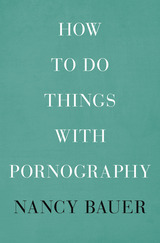
Feminist philosophers have made important strides in altering the overwhelmingly male-centric discipline of philosophy. Yet, in Nancy Bauer’s view, most are still content to work within theoretical frameworks that are fundamentally false to human beings’ everyday experiences. This is particularly intolerable for a species of philosophy whose central aspiration is to make the world a less sexist place. How to Do Things with Pornography models a new way to write philosophically about pornography, women’s self-objectification, hook-up culture, and other contemporary phenomena. Unafraid to ask what philosophy contributes to our lives, Bauer argues that the profession’s lack of interest in this question threatens to make its enterprise irrelevant.
Bauer criticizes two paradigmatic models of Western philosophizing: the Great Man model, according to which philosophy is the product of rare genius; and the scientistic model, according to which a community of researchers works together to discover once-and-for-all truths. The philosopher’s job is neither to perpetuate the inevitably sexist trope of the philosopher-genius nor to “get things right.” Rather, it is to compete with the Zeitgeist and attract people to the endeavor of reflecting on their settled ways of perceiving and understanding the world.
How to Do Things with Pornography boldly enlists J. L. Austin’s How to Do Things with Words, showing that it should be read not as a theory of speech acts but as a revolutionary conception of what philosophers can do in the world with their words.
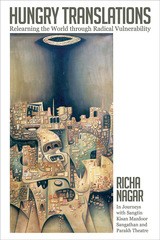
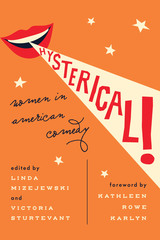
Ideal for classroom use, this anthology of original essays by the leading authorities on women’s comedy surveys the disorderly, subversive, and unruly performances of women comics from silent film to contemporary multimedia
Winner, Susan Koppleman Award for Best Anthology, Multi-Authored, or Edited Book in Feminist Studies, Popular and American Culture Associations (PACA), 2017
Amy Schumer, Samantha Bee, Mindy Kaling, Melissa McCarthy, Tig Notaro, Leslie Jones, and a host of hilarious peers are killing it nightly on American stages and screens large and small, smashing the tired stereotype that women aren’t funny. But today’s funny women aren’t a new phenomenon—they have generations of hysterically funny foremothers. Fay Tincher’s daredevil stunts, Mae West’s linebacker walk, Lucille Ball’s manic slapstick, Carol Burnett’s athletic pratfalls, Ellen DeGeneres’s tomboy pranks, Whoopi Goldberg’s sly twinkle, and Tina Fey’s acerbic wit all paved the way for contemporary unruly women, whose comedy upends the norms and ideals of women’s bodies and behaviors.
Hysterical! Women in American Comedy delivers a lively survey of women comics from the stars of the silent cinema up through the multimedia presences of Tina Fey and Lena Dunham. This anthology of original essays includes contributions by the field’s leading authorities, introducing a new framework for women’s comedy that analyzes the implications of hysterical laughter and hysterically funny performances. Expanding on previous studies of comedians such as Mae West, Moms Mabley, and Margaret Cho, and offering the first scholarly work on comedy pioneers Mabel Normand, Fay Tincher, and Carol Burnett, the contributors explore such topics as racial/ethnic/sexual identity, celebrity, stardom, censorship, auteurism, cuteness, and postfeminism across multiple media. Situated within the main currents of gender and queer studies, as well as American studies and feminist media scholarship, Hysterical! masterfully demonstrates that hysteria—women acting out and acting up—is a provocative, empowering model for women’s comedy.
READERS
Browse our collection.
PUBLISHERS
See BiblioVault's publisher services.
STUDENT SERVICES
Files for college accessibility offices.
UChicago Accessibility Resources
home | accessibility | search | about | contact us
BiblioVault ® 2001 - 2024
The University of Chicago Press









